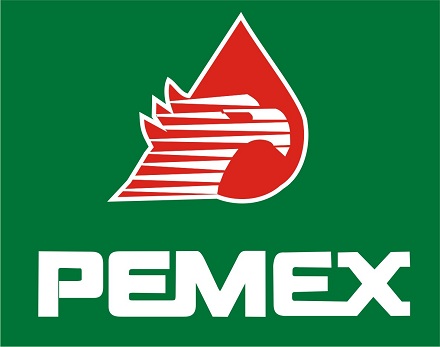Although the outcome of Mexico’s tedious presidential race has long seemed inevitable, it has spawned a serious debate over how to revitalize the Mexican oil industry — and, in particular, Petróleos Mexicanos (Pemex), Mexico’s state-owned oil company.![]()
Pemex is the second-largest company in all of Latin America (recently displaced by Brazil’s oil company, Petrobras). The topic featured in a debate earlier this week among all but one of the Mexican presidential candidates, and it has been at the forefront of policy discussions throughout the Mexican campaign.
Pemex has long been a thorny problem for Mexico, the world’s seventh-largest oil producer. Pemex is the source of around one-third of the government’s revenue, but the taxes and royalties that it pays to the government (around 60% of its revenues) have left it crippled and saddled with billions in debt, to say nothing of the corruption that has plagued the company throughout its history.
What this means is that, even when oil revenue have been at record-high prices, Pemex has been unable to reinvest in new technologies or further exploration. To make matters even worse, Mexico’s main oil field production has already peaked and Pemex’s production recently fell at a faster rate than at any time since the 1940s. Without reform, Mexico could become a net energy importer within a decade.
Since 2000, Pemex reform has been a top domestic agenda item for both presidents Vicente Fox and Felipe Calderón, but because their party, the Partido Acción Nacional (PAN), does not control Mexico’s Cámara de Diputados, they have not been able to implement significant domestic reforms (Pemex or otherwise). At each turn, the Partido Revolucionario Institucional (PRI) and the Partido de la Revolución Democrática (PRD) have joined to stymie any legislative action.
While talk of privatization has long been controversial, Calderón managed to pass minor reforms in 2008 through Congress to allow Pemex to hire private and foreign companies to hire private and non-Mexican companies to explore and produce. Direct foreign investment in Pemex, however, is still not permitted.
Of course, Josefina Vázquez Mota, the PAN’s presidential candidate, is firmly in favor of reforming the oil giant, although she has taken pains to couch her support in terms of “modernization” rather than “privatization” — oversight to ensure Pemex is run efficiently and baby steps toward more private-sector cooperation.
The real surprise has been Enrique Peña Nieto’s enthusiasm for Pemex reform — the frontrunning PRI’s candidate’s support, in fact, may well go beyond anything the PAN has recently proposed. Peña Nieto pointed to Petrobras as a model — in Brazil, although the state still holds a majority stake in its own oil company, it began issuing shares on the public market starting in 1997. More recently, it has recently made significant gains with foreign partners in offshore exploration, linked to an offering in 2009 that marked the largest market capitalization in Brazil’s history.
The PRI has always been dexterously flexible in its ideology — in many policy areas, Peña Nieto’s platform looks like a model blueprint of Calderón’s second term. The prospect that Peña Nieto’s party will control the Mexican Congress as well, however, means that it may now enact the same reforms that it has blocked for the past 12 years (with the PRI, of course, taking full political credit for breaking the legislative logjam).
Although Mexican production is projected to remain steady at around 3 million barrels per day over the next decade, a Peña Nieto-led reform might enable Pemex to obtain additional private-sector investment to expand its exploration efforts, especially in the Gulf of Mexico. It might also permit the private sector to build refineries, a capital-intensive investment in a country that’s well below its refining capacity.
Meanwhile, the PRD’s candidate, Andrés Manuel López Obrador, has doubled down on state ownership, accusing both of his opponents of trying to privatize Pemex, citing Article 27 of the Mexican constitution, which states that all national resources are property of the nation. López Obrador has argued that continued state-ownership, as opposed to private ownership, will keep it “operationally honest.”
In a move couched with symbolism, López Obrador has pledged to appoint Cuauhtémoc Cárdenas as head of Pemex. Cárdenas is the PRD founder, former presidential candidate and, like López Obrador, a former head of government of the Distrito Federal. More importantly, perhaps, Cárdenas is the son of former president Lázaro Cárdenas, a leftist champion who in 1938 expropriated the then-foreign-owned U.S. and European oil interests to form Pemex.

5 thoughts on “Three candidates and two visions for Pemex reform in Mexican presidential race”